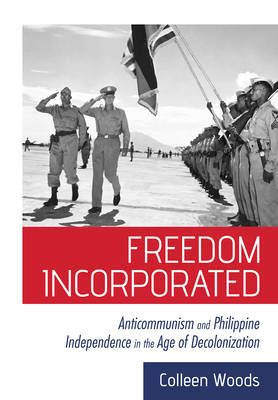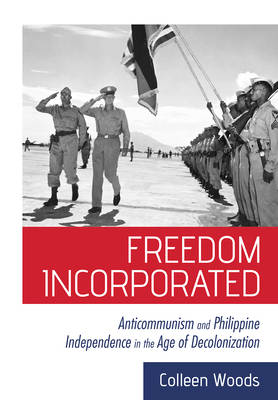
- Retrait gratuit dans votre magasin Club
- 7.000.000 titres dans notre catalogue
- Payer en toute sécurité
- Toujours un magasin près de chez vous
- Retrait gratuit dans votre magasin Club
- 7.000.000 titres dans notre catalogue
- Payer en toute sécurité
- Toujours un magasin près de chez vous
Freedom Incorporated
Anticommunism and Philippine Independence in the Age of Decolonization
Colleen WoodsDescription
Freedom Incorporated demonstrates how anticommunist political projects were critical to the United States' expanding imperial power in the age of decolonization, and how anticommunism was essential to the growing global economy of imperial violence in the Cold War era.
In this broad historical account, Colleen Woods demonstrates how, in the mid-twentieth century Philippines, US policymakers and Filipino elites promoted the islands as a model colony. In the wake of World War II, as the decolonization movement strengthened, those same political actors pivoted and, after Philippine independence in 1946, lauded the archipelago as a successful postcolonial democracy. Officials at Malacañang Palace and the White House touted the 1946 signing of the liberating Treaty of Manila as a testament to the US commitment to the liberation of colonized people and celebrated it under the moniker of Philippine-American Friendship Day. Despite elite propaganda, from the early 1930s to late 1950s, radical movements in the Philippines highlighted US hegemony over the new Republic of the Philippines and, in so doing, threatened American efforts to separate the US from sordid histories of empire, imperialism, and the colonial racial order.
Woods finds that in order to justify US intervention in an ostensibly independent Philippine nation, anticommunist Filipinos and their American allies transformed local political struggles in the Philippines into sites of resistance against global communist revolution. By linking political struggles over local resources, like the Hukbalahap Rebellion in central Luzon, to a war against communism, American and Filipino anticommunists legitimized the use of violence as a means to capture and contain alternative forms of political, economic, and social organization. Placing the post-World War II history of anticommunism in the Philippines within a larger imperial framework, in Freedom Incorporated Woods illustrates how American and Filipino intelligence agents, military officials, paramilitaries, state bureaucrats, academics, and entrepreneurs mobilized anticommunist politics to contain challenges to elite rule in the Philippines.
Spécifications
Parties prenantes
- Auteur(s) :
- Editeur:
Contenu
- Nombre de pages :
- 282
- Langue:
- Anglais
- Collection :
Caractéristiques
- EAN:
- 9781501749131
- Date de parution :
- 15-05-20
- Format:
- Livre relié
- Format numérique:
- Genaaid
- Dimensions :
- 152 mm x 229 mm
- Poids :
- 566 g







